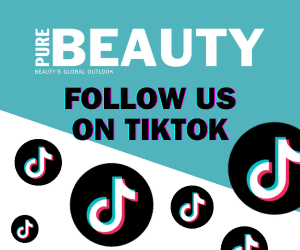Women over 50 often fall off the beauty radar but as their numbers grow, it is time the beauty industry woke up to this demographic, says Imogen Matthews
The rate at which UK population is ageing has speeded up. In 2011, there were 9.2 million people over 65 in England and Wales, representing one in six of the population, up from one in 20 in 1911. However as far as the beauty industry is concerned, few companies have done anything to address this trend.
It's not just the over 65s who are being ignored; once women reach their 50s they fall off the beauty industry radar. And yet, they account for a large proportion of make-up, skin care and toiletries sales with the greatest impact in hand care, skin care and styling products.
The problem doesn't lie with the products; there are plenty of products out there which are suitable and loved by older women. Tracey McAlpine, who is developing a website for women over 50 called Fighting Fifty Limited, identifies that the industry is failing because it stereotypes the over 50 age group: “Many brands interpret 50 to be over 70; they have an outdated view that after this age women have little interest in self-improvement, are too old to learn new techniques or that they are unlikely to switch brands. In fact women of this age are living more active lives. They are often mentally and physically younger than they were ten years ago and they want their appearance to keep up with their attitude.”
Everywhere you look there are images of young women in their teens and 20s advertising the latest false lash effect mascaras, vibrant lip and nail colours, fake tanning products and, of course, skin care including anti-ageing moisturisers promising to reduce the appearance of wrinkles and other age-related skin concerns. Why? Is it because brands are scared to show older women in advertising or think it might turn off potential customers? Do they really know what women over 50 think about beauty products, the packaging, advertising, claims and the shopping experience?
In my report Older Women: The Forgotten Demographic, I interviewed women aged 54-90 to find out the answers to these important questions and to provide recommendations on how brands, retailers and the media can connect more meaningfully with this age group. The results were emphatic: just because they are getting older (and this is true of women in their 50s, 60s, 70s, 80s and even 90s), they don't give up using cosmetics and skin care.
Popular brands used included Boots No7, Bobbi Brown, Nivea, Rimmel, Simple, Max Factor, Olay, Clarins, Estée Lauder and Clinique. How many of these, and indeed other beauty brands, think about older women when putting together their marketing and advertising campaigns?
Beauty advertising came in for a lot of criticism by respondents in the research group. Annie, aged 59, said: “I shout at the TV when I see ads with women with no wrinkles or who are too young to have them.” Sheila, aged 60, said that glamorous models didn't do it for her: “I'm very cynical and don't believe if I use this [product] I'll have perfect looking skin. It has the opposite effect.”
No one in the survey felt that beauty ads were relevant to their age group. But using older models isn't the full answer; they must look realistic to be believable. Diana, aged 69, summed up the sentiment when she said: “Why are we so brainwashed that wrinkles are so awful and big eyes so wonderful? In 50 years, will we look back and laugh?”
Shopping for beauty is not always easy or pleasurable for the older woman either. Cathy, aged 56, said: “I don't want to feel like a granny going
round the department because I can't read the packaging. The developers should think about this. The problem is that they are young and have no idea how hard it is to read pack copy when you're over 50.”
Caroline Neville, president of CEW (UK) has long believed that the beauty industry is not targeting older women to their full potential. She points out: “Women over 45 today are more educated about the benefits of taking care of their skin. They are more informed about colour cosmetics and how to apply them because the beauty press have educated them over the years. Many are working longer, either out of choice because they have a good job, or because they needed to return to work for financial reasons.”
The beauty industry needs to wake up to the fact that women over 50 are not over the hill. Many are successful business women who wield enormous spending power but will only spend as long as they are treated with respect.




